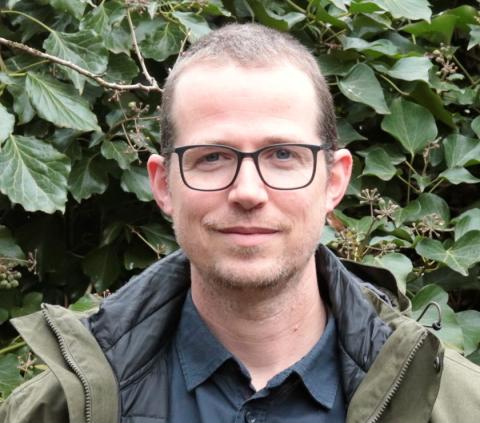Arie Trouwborst: "We need to return a lot of space to nature"
In "Time to Talk & Think", the choice is yours: will you go for a short update to get up to speed on the latest news, a longer article to dive deeper into the subject or are you "all ears" and want to know all about it? Read more about Arie Trouwborst's interesting research in the run-up to his inaugural address on January 26.
In a nutshell
1 min.

Arie Trouwborst argues in favor of giving back a lot of space to nature, a model of coexistence whereby people share the landscape generously with other species, and of making ambitious efforts to restore nature. Recognizing nature’s intrinsic rights could also help achieve this.
On Friday, January 26, 2024, the inaugural address will take place at 16:15 hrs. in the Auditorium in Cobbenhagen Building. The address can also be followed via a livestream: Live broadcast Auditorium | Tilburg University.

Prior to the inaugural address, a symposium entitled 'Megafauna restoration - ecological & legal perspectives on rewilding with large mammals in Brabant and beyond' will be organized.
Let's explore more
5 min.

Large wild animals are key to biodiversity recovery
We are living in an age where crises are hot on each other’s heels, but the one to potentially top them all is the biodiversity crisis. And to tackle the biggest of all crises, we must also think big, says environmental law researcher Arie Trouwborst. One of his interests is the return of megafauna – large wildlife such as wolves and European bison but perhaps also lions and elephants – to Europe.
In our collective memory, the natural habitat of big wild animals is in Africa and Southeast Asia. In Europe, we are more likely to think of bees, sparrows, and lapwings as species under threat of extinction. This is a classic case of shifting baseline syndrome: each generation only remembers the species that were prevalent in their childhood. In other words, Arie Trouwborst contends, we suffer from collective amnesia: we have completely forgotten the large animals that for millions of years played a key role in European ecosystems. Animals such as wild horses and cattle, moose, European bison, lions, and hyenas, but also rhinoceros, mammoths, and straight-tusked elephants. The rise of homo sapiens, starting about 40,000 years ago, put an end to their dominion.
I'm all ears
48 min. (podcast)

The wolf is back
Tempers about the wolf are running so high that Minister of Nature and Nitrogen Christianne van der Wal is proposing a broad public dialogue about its place in our country. Does such a debate make sense? And is there actually any polarization at all? Doesn't the excitement about him have something to do with the fact that we have grown weary of him? After all, how much damage is the wolf doing now? And how dangerous is he really?
A conversation about the wolf with conservation law researcher Arie Trouwborst and sociologist and lecturer Quita Muis who knows all about changing values in Europe. In “The Walk” , Femke Trommels talks further with philosopher Herman de Regt.
This podcast is only available in Dutch.
